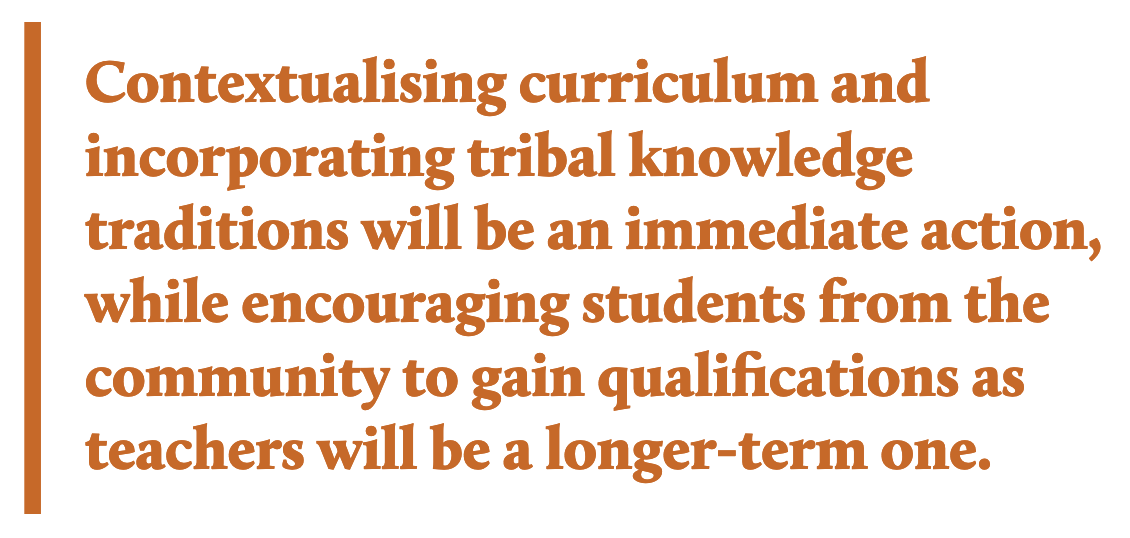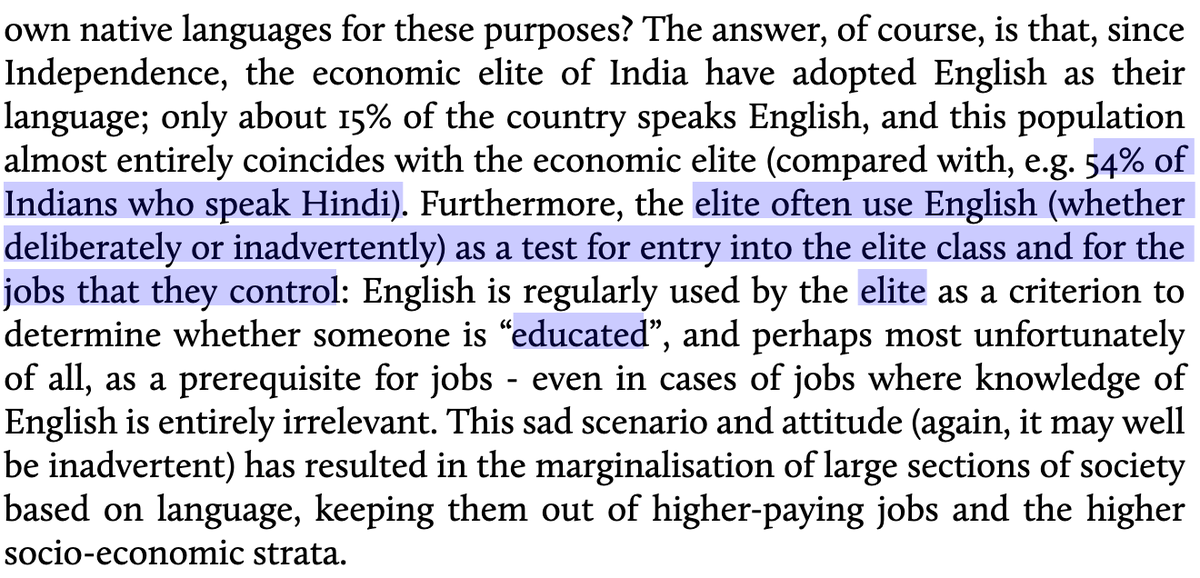(Thread - yet to go through it fully) New Education Policy ( #NEP - https://mhrd.gov.in/nep-new ) has a few things that are critical:
• Good news for languages.
• Anything "not mandatory" in this country has to be taken with a grain of salt. We've seen Aadhaar and then Aarogya Setu. https://twitter.com/sardesairajdeep/status/1288702113573253121
• Good news for languages.
• Anything "not mandatory" in this country has to be taken with a grain of salt. We've seen Aadhaar and then Aarogya Setu. https://twitter.com/sardesairajdeep/status/1288702113573253121
Important to note that the Preamble starts with acknowledging the Universal Declaration of Human Rights, specifically “education shall be free, at least in the elementary and fundamental stages”.
↳ Also crucial to note that the majority of the committee is BJP affiliated
(2/n)
↳ Also crucial to note that the majority of the committee is BJP affiliated
(2/n)
When they start with universal edu & diversity, they lead to glorification of Brahminism, rishis (imaginary sages!), Sanskrit scholars and Hindu/Hindu-compliant religions. No mention of animism that form the basis of Adivasis and their faiths, if faith was needed at all.
(3/n)
(3/n)
p. 148: "Easy-read material translated into local spoken languages will be used in the early grades to initiate children into learning" — how "reading" materials are prepared for oral languages? One would prepare multimedia resources and not force the speaker to "read".
(4/n)
(4/n)
• The inclusion of advisories like use of native/local language in elementary level is very vital & timely. But native language(s) are different than local languages.1st language for most Adivasis are their own languages. Local languages can be state official languages.
(5/n)
(5/n)
• Both are promising if & when actioned — would create job opportunity for native language scholars while helping children access knowledge in their languages.
• Contextualizing pedagogy and curriculum are both positive steps. Hope community consensus taken into account.
(6/n)
• Contextualizing pedagogy and curriculum are both positive steps. Hope community consensus taken into account.
(6/n)
This totally misses out the fact that most Adivasi languages are oral, and only a small % are written whereas literacy is really low for those which are written. The focus must be for not creating more entry-level barriers but making learning easy in one's own language.
(7/n)
(7/n)
Education of transgender children in schools: This, if implemented, will be revolutionary.
↳The structural challenge still lies w. the use of gendered vocabulary & languages — Hindi which the center promotes (read imposes) religiously is a highly binary-gendered language. (8/n)
↳The structural challenge still lies w. the use of gendered vocabulary & languages — Hindi which the center promotes (read imposes) religiously is a highly binary-gendered language. (8/n)
This is as problematic as it goes. Children r not language-learning bots! Learning languages can start w. native language(s) and lead towards the state official languages, not all at once. 3 languages in grade 3 is the opposite of reducing the load of schoolbags. (9/n)
Standardizing one sign language is more like one nation one language theory. India is too diverse to have one language. Local sign languages don't need the respect but they need to be used primarily, even over the yet-to-be standardized ISL. (10/n)
p. 81: "Multilingualism and the power of language" — it starts off well with talking about India's linguistic diversity, falls through the cracks of [a certain home-feel and “apnaapan”] Hindi, and tries to get into a war with English by relating it to the elites. Pity! (11/n)
54% of Indians speak Hindi? When did that happen?
⤷This is the most troubling part of the policy. Despite of having a good representation from South India in the committee, it ends up glorifying Hindi as a lingua franca over English—a pointless war to lead to nowhere. (12/n)
⤷This is the most troubling part of the policy. Despite of having a good representation from South India in the committee, it ends up glorifying Hindi as a lingua franca over English—a pointless war to lead to nowhere. (12/n)
Vocational training and internships are some of the aspects that actually look progressive in theory. But, labor laws are flaky already, and there is not much regulation in reality — the growing concern of child labor cannot be ignored. https://twitter.com/aishe_ghosh/status/1288756826457038849
(13/n)
(13/n)

 Read on Twitter
Read on Twitter





![p. 81: "Multilingualism and the power of language" — it starts off well with talking about India's linguistic diversity, falls through the cracks of [a certain home-feel and “apnaapan”] Hindi, and tries to get into a war with English by relating it to the elites. Pity! (11/n) p. 81: "Multilingualism and the power of language" — it starts off well with talking about India's linguistic diversity, falls through the cracks of [a certain home-feel and “apnaapan”] Hindi, and tries to get into a war with English by relating it to the elites. Pity! (11/n)](https://pbs.twimg.com/media/EeJ4E7aU8AInXvr.png)




